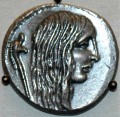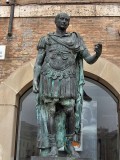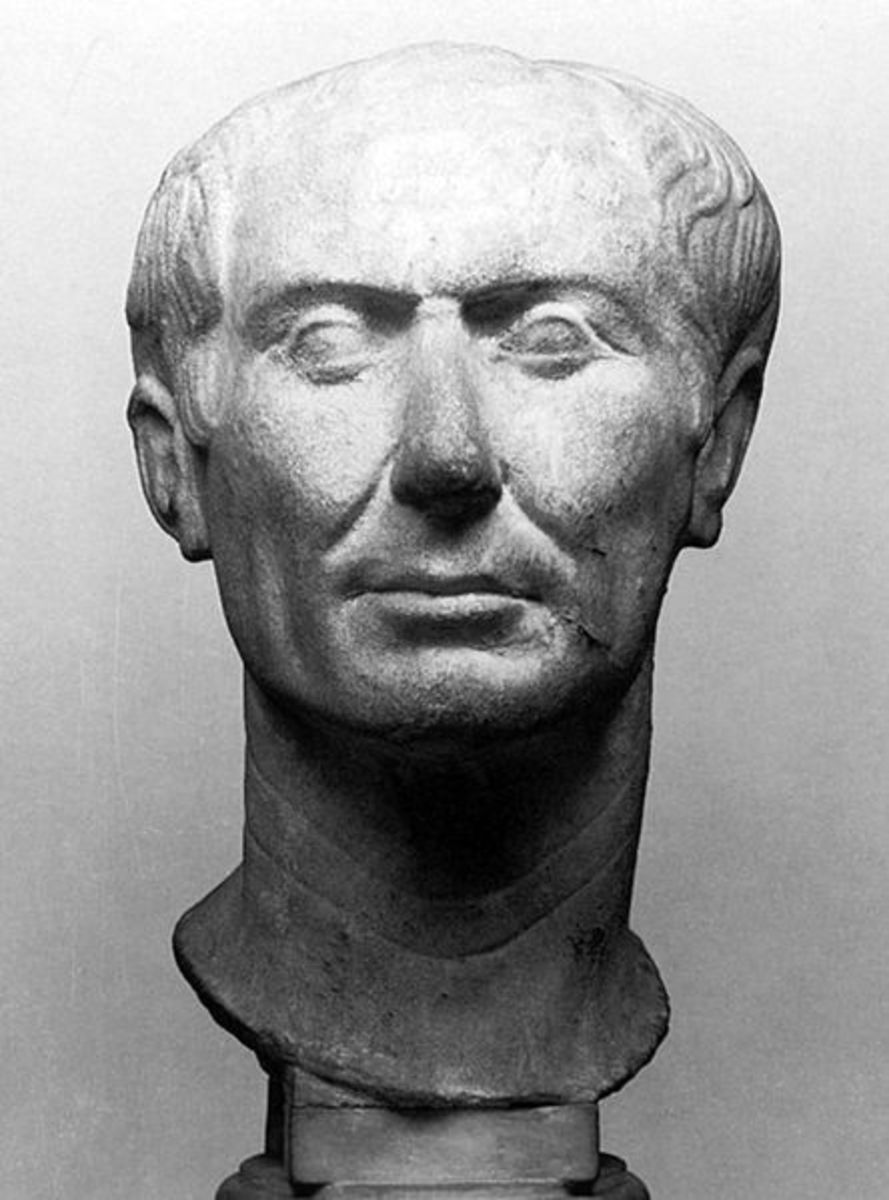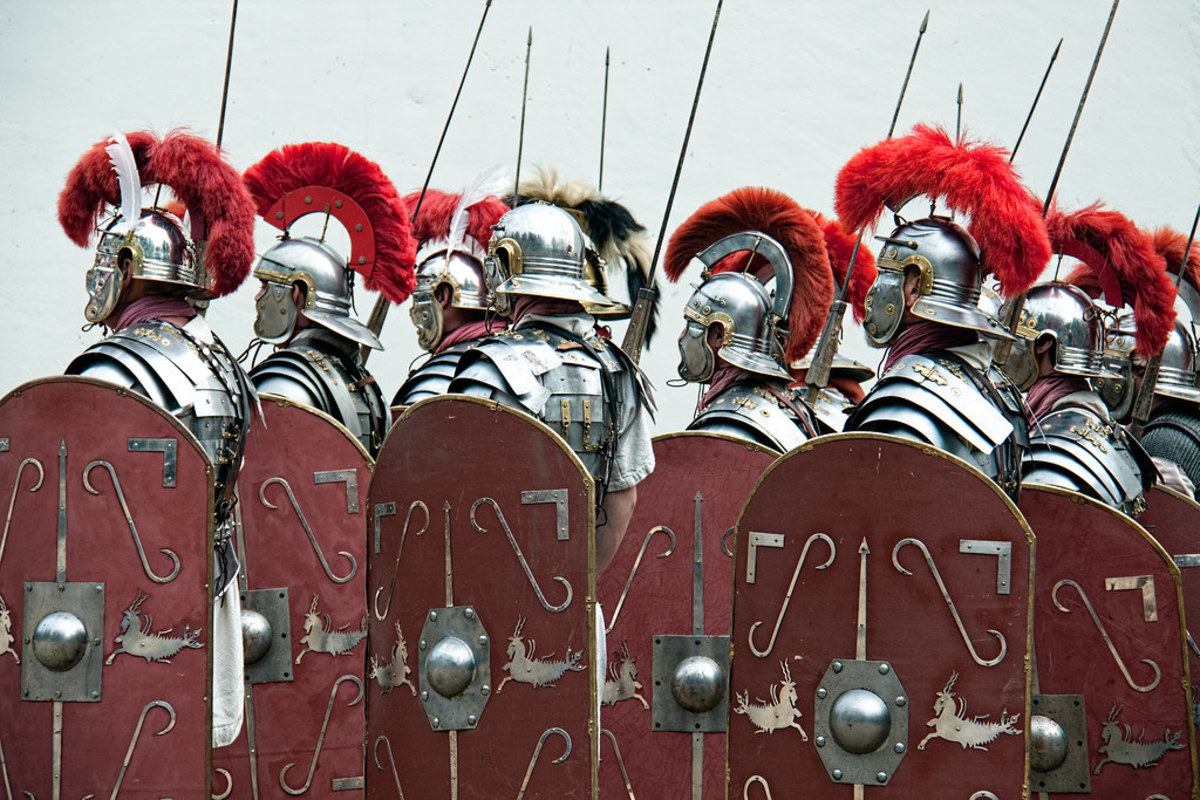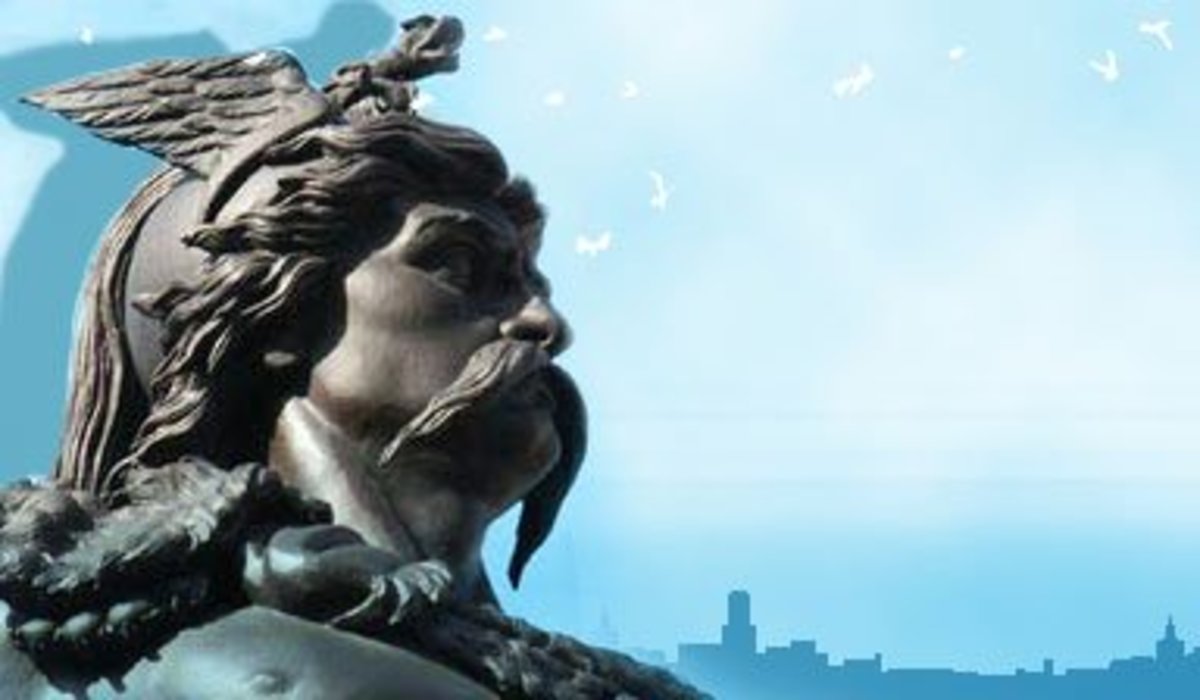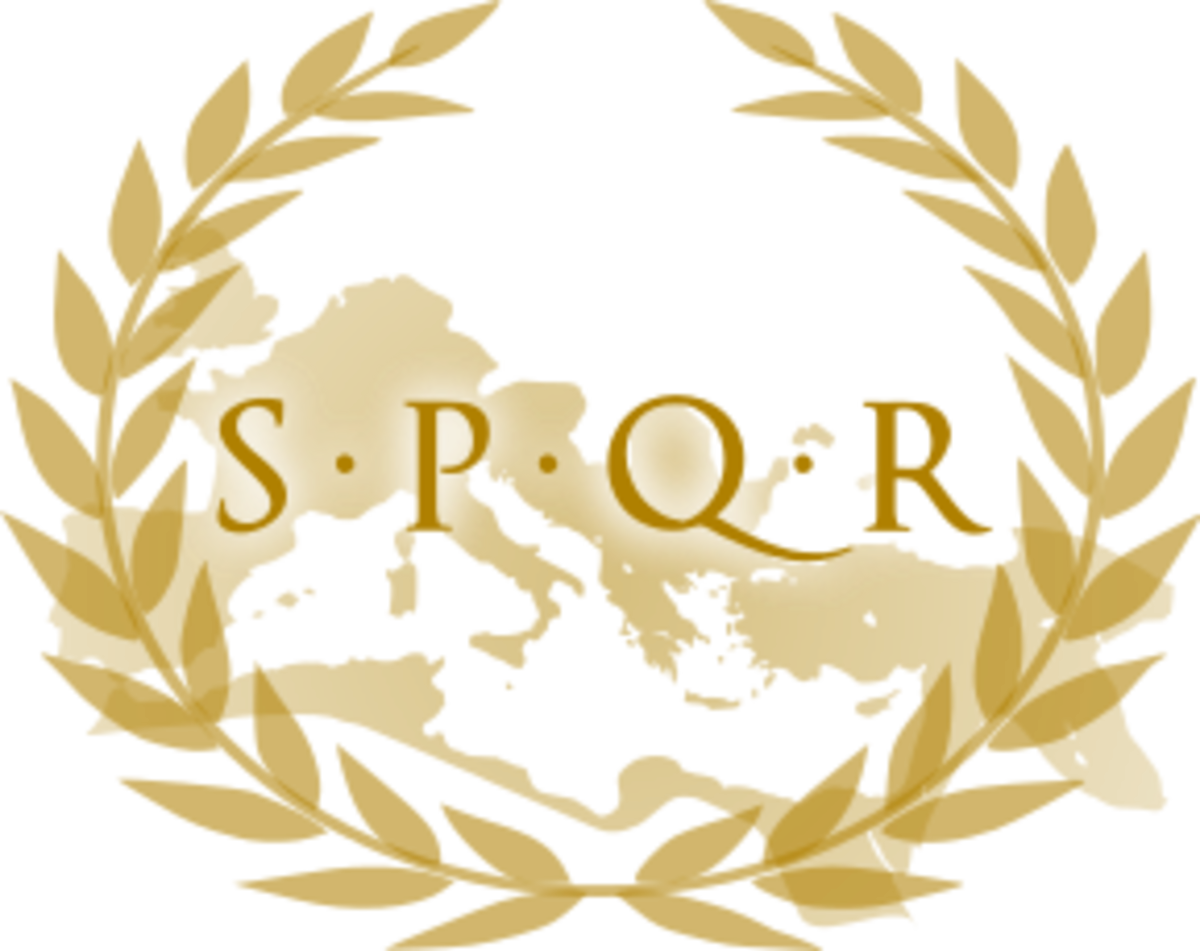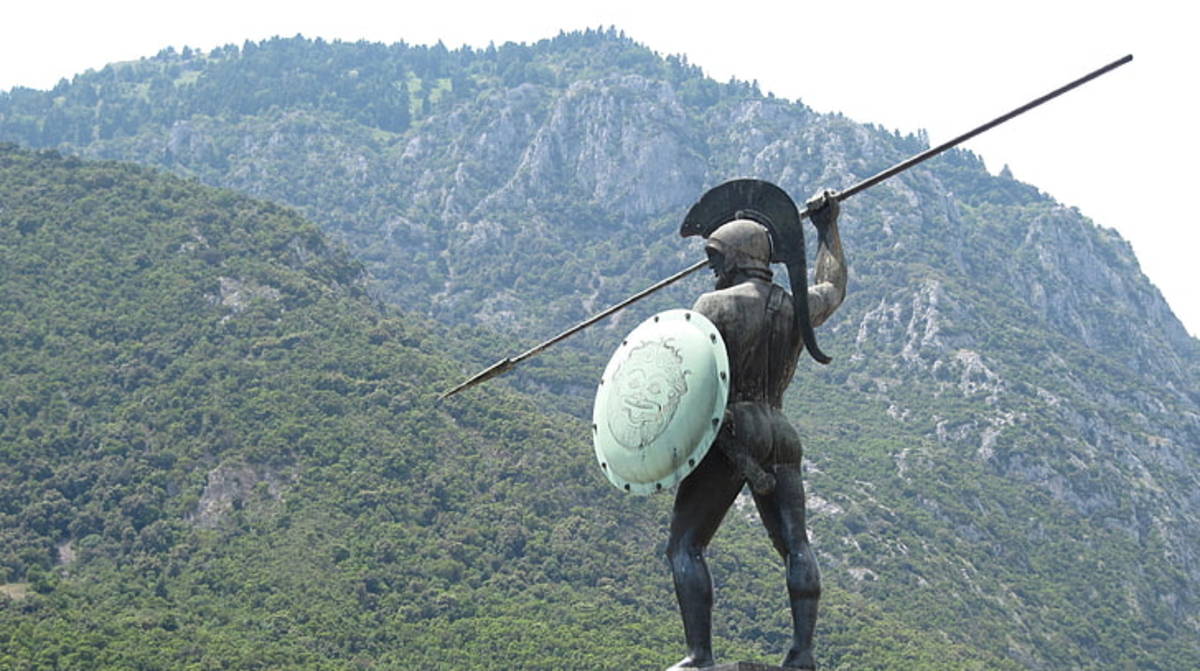- HubPages»
- Education and Science»
- History & Archaeology»
- Ancient History
Julius Caesar: Power and Glory
The New Consul of Rome
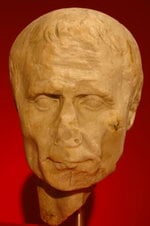
Consul of Rome
Julius Caesar became Consul on the 1st January 59 BC, alongside him in the hot seat, was none other than Cato the Younger’s son in law Bibulus who had also secured his position through bribery and influence. Caesar had no intention of sharing his time as Consul with a relative of his enemy, and was determined to try to pass through a series of ambitious measures, by any means necessary, even resorting to outright intimidation. Plutarch records that he even went so far as to empty a bucket of manure over his head. An incensed Bibulus retired to his home and declared that he was ‘watching the skies’ and that all senatorial business had to be suspended. Political observers at the time correctly deduced that Rome was now under the Consulship of Julius and Caesar. Caesar now effectively did the work of two men and further enhanced his reputation with the people, by turning to the People’s Assembly after growing increasingly frustrated with the Senate. With the support of Vatinius, the tribune of the ‘plebs’ he managed to get his proposals passed. At this particular juncture, Caesar had come remarkably close to breaking the law, the Senate could have easily voted to invalidate his legislation, either by choosing to endorse Bibulus’ objections or by accusing him of resorting to brute force.
Caesar further endeared himself to the people by passing a legislation to distribute state owned land in Campania, the most agriculturally prosperous area in Italy to the poor. As you can imagine, the deal proved hugely unpopular with the aristocracy. He also passed a law that gave land to Pompey’s war veterans. Additionally he passed a law against extortion by Roman officials in the provinces, by drawing up a detailed charter that regulated administration, at the same time it served to ratify Pompey’s eastern settlement. He even took the step of publishing the daily proceedings of the Senate in bulletin form. I guess you can call it a forerunner of a tabloid newspaper.
Later on that year, Pompey and Crassus met with Caesar in order to extend their previous agreement, purely to safeguard their own interests of course. Caesar decided to join his blood with Pompey’s by offering his daughter Julia in marriage. He, himself had already married Calpurnia, the daughter of Piso, a candidate for Consulship for the following year. Vatinius, the tribune mentioned earlier recommended that Caesar receive a special five year command over provinces in northern Italy and along the coastline of Dalmatia (Illyricum). Ironically, the precedent for such a command had been set ten years before by Pompey, for the purpose of clearing the Mediterranean of pirates, and also for defeating Mithridates.
Before he left to take up his posting as Proconsul in the provinces, the Senate attempted to reconcile with Caesar by offering to re-enact the legislations they had rejected before, with all due legal processes. Caesar dismissed the offer, as a slight on his dignity, and left Rome behind early in 58 BC, by now his relationship with the Senate was damaged almost beyond repair. Most historians regard Caesar’s decision to head north as peculiar, considering that in the east, a tribe known as the Getae were threatening to invade Illyricum and spill into northeast Italy. It could well be, that he chose to head to Gaul, to try and accomplish something that Alexander had never done, conquer the west and the north.
A New Frontier
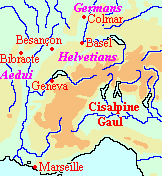
Gaul
The country once known as Gaul, now known as France is very much a Roman invention. The majority of the population were what we know today as Celts, with Germanic tribes occupying the north and the east of the country. The southern end of Gaul was occupied by Ligurians and Iberians, most of the tribes spoke Gaulish languages that were similar to each other. The tribes that dwelt in Britain at the time, spoke their own variant of the language, and were of the same ethnic group as their Gaulish cousins.
Prior to Caesar’s conquest, the country was divided into two sections called Cisalpine and Transalpine Gaul. Cisalpine, which was already under Roman control covered a large area of northern Italy, while Transalpine covered a wide area from the Pyrenees in the south, right up to the English Channel in the north. The westward boundary was the Atlantic, and the Rhine served as the boundary in the east. The modern nation of France still has these rough boundaries initially drawn up by the Romans.
At the beginning of the campaign Caesar had four legions at his disposal; later on he would add another six, bolstering his army up to 50,000 men. The reason why he was so easily able to muster so many men, was due to the fact that both areas of Gaul were ripe recruiting grounds, and no doubt Caesar using his oratory skills, proved a very persuasive recruiter. Additionally he relied on an unknown number of lightly armed troops hailing from North Africa, Crete and the Balearic Islands.
While the Romans were everything you would expect a model, professional army to be. In contrast the Gaul’s were a rather ill-disciplined and disorganised bunch. There are no accurate records of their numbers, as the ones given by Caesar are probably inflated, but what is certain is that the Romans were outnumbered considerably. If the tribes had succeeded in uniting and putting their differences to one side, then Caesar’s conquest would have failed before it even got started. But they were always distracted by local and often petty conflicts. Consequently, the chances of the tribes uniting were extremely low.
It’s not entirely clear what Caesar’s instructions from the senate were, when he took up his commission, though it’s a good bet to assume that they did not authorise him to attack the free area of Gaul. Unfortunately, we only have Caesar’s own war commentaries to go by; therefore much is shrouded in obscurity. Strangely Caesar states that he never intended to conquer the whole of Gaul, and simply insisted that he pretended to represent the interests of one tribe against another.
In the ancient world, it was typical that a campaign took place in the summer months, and Caesar’s was no exception; he used the long winter months to retire to Cisalpine Gaul, where he could easily keep up with developments in Rome. Also, by residing in the Roman province, he made himself easy to contact, if required.
Battleground

The Helvetii, Suebi and Nervii
In the spring of 58 BC, a Gaulish tribe known as the Helvetii requested permission to enter Transalpine Gaul, so that they could get to the Bay of Biscay, where they intended to settle down. Despite the fact that the Helvetii assured him that there was no hostile intent. Caesar refused the request, recalling how in 107 BC, the Helvetii had played a similar card and ended up humiliating a Roman army. Nevertheless, they began to pour into the province anyway, some 250,000 of them. For Caesar, this may have been secretly what he wanted, by defying his refusal; he had the perfect excuse to start a war.
Immediately he raised three legions and struck north right at the tribe, driving them back into Switzerland. Not long after that, he turned his attention to a Germanic tribe called the Suebi, led by a former ally of Rome Ariovistus. Caesar’s legions ploughed into the Suebi, as they were moving across the Rhine and defeated them utterly.
The following year, Caesar raised three more legions and struck further north into land that we know today as Belgium. However, as his army advanced they were attacked by the Nervii, the local tribe, despite being taken by surprise; the Romans prevailed, although it was largely thanks to Caesar’s extraordinary personal courage that they did. With the Nervii vanquished, he decided to announce that Gaul had been successfully pacified, although considering that he had only defeated three tribes, the announcement was extremely premature. Even so, the Senate granted him an official ‘supplicatio’ or thanksgiving festival to commemorate his victory that lasted a whole fortnight.
Political Troubles
Meanwhile in Rome, Caesar’s numerous enemies began making moves to strip him of his command in Gaul, but more importantly they wished to destroy him politically by preventing him from holding any future public position. One particular enemy was Domitius Ahenobarbus, a man who wished and was confident that he would be elected Consul. He declared that he would use his authority to recall Caesar and prosecute him for certain illegalities committed during his tenure as Consul. For Caesar, the threat of political ruin was very real and he was compelled to enter into further negotiations with Pompey and Crassus, whom he met at Luca. In addition to the governorship he already held, he desired the Senate to officially recognise his conquest of Gaul. The agreement the three men came to was that Pompey and Crassus would be elected as Consuls, as a mark of gratitude Caesar granted Pompey provinces in Spain, while Crassus received Syria. Upon assuming office, both men would extend Caesar’s Proconsulship, by forbidding any discussion on the matter until the 1st March 50 BC.
With the political threat gone for now, Caesar could turn his attentions once more to try and extend Rome’s reach across Gaul and beyond. He launched a series of campaigns against maritime tribes in Brittany and Normandy. He also met with considerable success in the south, with a crushing victory against the Aquitani tribe that dwelt on the French side of the Pyrenees, close to the Spanish border.
The Bridge that Crossed the Rhine
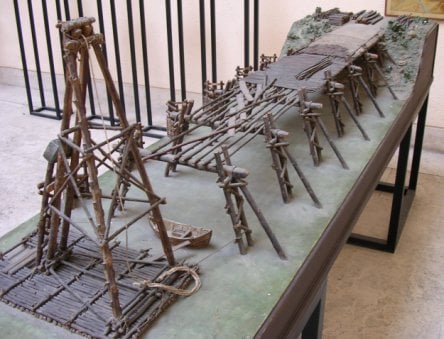
The Campaign Map
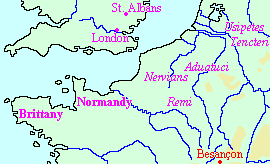
The Enemy's Chief Weapon
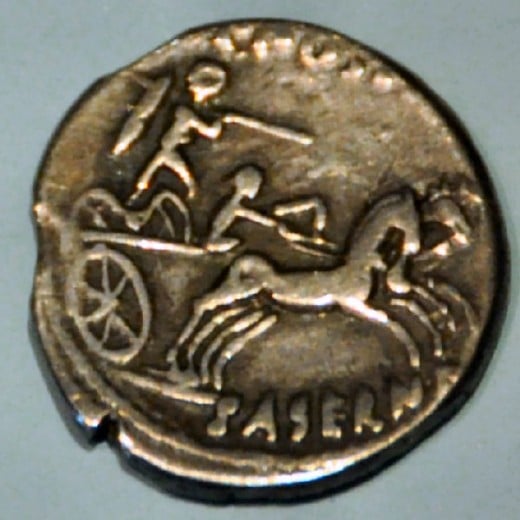
Britain
The next campaign season would see Julius Caesar move eastwards towards the German Rhine. Two Germanic tribes, the Usipetes and the Tencteri had crossed the river and begun to advance into Gaul, confident that they could seek a foothold, given the fact that many of their Celtic neighbours had been pacified by the Romans. In order to force them back, Caesar actually bridged the Rhine, the first time in history up to that point that such a thing had been attempted successfully.
As the year rolled on though, Caesar’s gaze fell on the lime white cliffs that lay just twelve miles across the Channel. Two thousand years later, two more infamous historical figures bent on glory and conquest would do just the same. Caesar commissioned two of his legions to accompany him on a reconnaissance mission to the strange land with those distinctive cliffs, of course today the land is known as Britain, but to Caesar it must have felt like the edge of the world. The Romans already knew that there were people similar to the Gauls living across the water, so Caesar’s purpose was to ensure that the Britons were unable to assist their Gallic neighbours in any way, although the fact that the island was said to be rich in valuable minerals no doubt acted as further incentive.
However, the campaign would prove to be unsuccessful, he greatly underestimated the Britons, there was virtually no preparation and he knew hardly anything about the enemy's strengths and capabilities. Never before had he encountered anything like the British war chariots which were extremely fast and manoeuvrable compared to any seen back in Rome. Also, his ships used to the relative calm of the Mediterranean were ill suited for the choppy, harsh waters of the Channel. As a consequence, several were lost on the crossing, wrecked by a storm. After having to hastily rescue one of his legions from the cruelty of the sea, he bade a hasty retreat back across the Channel.
Once back on the relatively familiar soil of Gaul, Caesar claimed a victory, despite the fact that only two tribes obliged his request to send him hostages. Even so, back in Rome the Senate liked what they were hearing and decided to award him with another ‘supplicatio’ this time last nearly a week longer than the one he had received for ‘pacifying’ Gaul. To the Romans, Britain lay at the very end of their world, and the fact that Caesar had actually managed to undertake the perilous crossing was something to be marvelled at.
In 54 BC Caesar along with five legions returned to Britain and stayed there for several months. Nowhere is it revealed exactly what he hoped to accomplish by attempting another invasion, it could well be that he was seeking to restore some sort of injured pride. He detailed his engineers to build him a new kind of vessel, one with a much shallower draught than usual, it would become the first amphibious landing craft in history, and it helped to deliver the Romans to the British coast safely. After a rather protracted campaign, he crossed the Thames near Brentford (not far from where London is today) and engaged an unknown tribe led by a man called Casivellaunus who had effectively declared himself to be leader of the Britons. In September, Caesar’s campaign was cut short, when news reached him of unrest in Gaul, the notion of pacification was obviously wrong, and he hurriedly re-crossed the Channel to try and quell the problem.
Historians today still find it hard to see exactly what Caesar’s invasion accomplished. If anything it damaged his reputation rather than enhanced it. Back in Rome, for the first time questions were raised about his grasp of strategy and decision making. The Britons did agree to pay tributes and provide hostages, but their contempt of the Romans was obvious, by the fact that they failed to uphold the agreement. Cicero in particular was dismissive and apathetic of the campaign, and it’s likely that the rest of the Senate were of the same mind. Rome would show no further interest in Britain, until 43 AD, when Claudius successfully invaded and conquered most of it. For Caesar though, his troubles were only just beginning, he faced an uphill struggle to regain control of Gaul.
More to follow:


